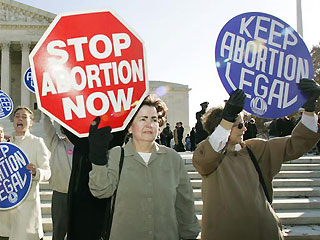Last week marked the 41st anniversary of Roe v. Wade: a Supreme Court case that granted women the constitutional right to have an abortion within the first three months of pregnancy. Forty-one years later, the ruling enjoys the support of most American adults. According to Pew Researcher, 65% of American adults say they disfavor overruling Roe V. Wade, while 29% of adults welcome its appeal gladly.
However, the 41-year-old statue’s popularity is meager in the African American community. According to Guttmatcher Institute, a pro-choice non-profit organization that researches abortion laws, 49% of African Americans believe that abortion is morally wrong, 15% believe it is morally permissible, and 33% see abortion as a non-moral issue. Paradoxically, Black Americans, being among the nation’s biggest opponents of abortion, also have the most abortions. The Guttmatcher Institute found that African American women are 15 times more likely to have abortions than their White counterparts.
So, what does the anniversary of Roe v. Wade mean for African Americans?
For many in the Black community, the anniversary is an emblem of our nation’s depravity. “I think it’s wrong to kill a baby,” says Domale Keys, a UCLA grad-student studying Education, and the founder of Project AIDS Nigeria, a non-profit organization that seeks to combat aids in Nigeria. For Keys, as with many African Americans, life begins at conception. Arriving at this conclusion was the catalyst to her conversion from pro-choice to pro-life. She said, “I was pro-choice until I sat down and thought about it, and I was like, ‘wow…this is not right…’ People [who are pro-choice] really need to think about it.”
Others in the African American community see Roe V. Wade as a manifestation of social progress. According to the Boston Women’s Health Book Collective, a global nonprofit, public interest organization based in Cambridge, prior to Roe V. Wade 5,000 women died annually due to illegal abortions. For students like Dominque Hall, a third year Sociology major at UCLA, Roe v. Wade is admirable precisely because it makes such ‘back-alley abortions’ unnecessary. Hall said, “Whenever you make something illegal, people are going to seek other methods to do what they want to do anyway… if they want to abort their baby they’re going to do it [illegally] unfortunately.”
But Lawrence E. Traylor Jr., a fourth year Afro-American Studies major and Political science minor, sees a middle ground between the warring ideologies—namely, education. Taylor argues, “Generally I think that education is the key to any ills that effect our community…everyone’s not going to agree [on everything]… but I think sexual education is the middle ground.”
Guttmacher’s research also found that the non-use of contraception is greatest among those who are young, poor, Black, Hispanic, and/or less educated. And so, perhaps, sexual education may indeed be the thin parcel of mutuality between the opposing factions; as an increase in contraception usage would equal a decrease in situations where abortion becomes an option.

